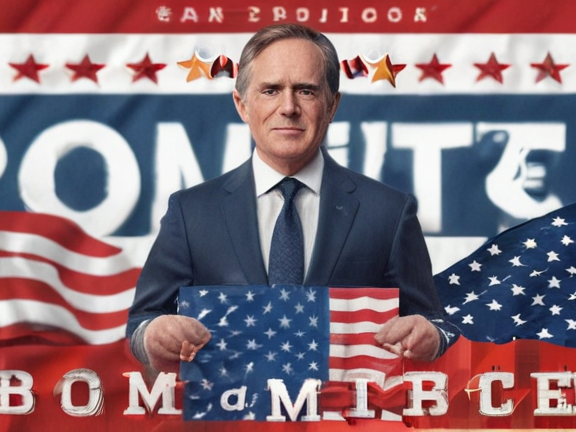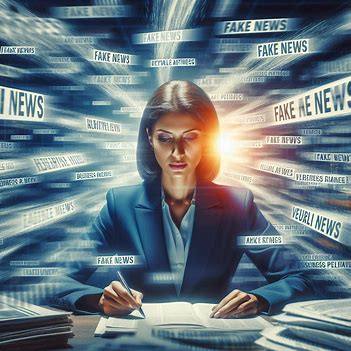 In business and politics, what’s beneath the surface often determines long-term stability. A spotless appearance means nothing if the foundation underneath is weak or ignored. In the same way, shiny tiles mean little when the grout between them is filled with dirt and mold. The principle is simple — success, whether in governance or business, relies on the willingness to clean up what most people overlook.
In business and politics, what’s beneath the surface often determines long-term stability. A spotless appearance means nothing if the foundation underneath is weak or ignored. In the same way, shiny tiles mean little when the grout between them is filled with dirt and mold. The principle is simple — success, whether in governance or business, relies on the willingness to clean up what most people overlook.
The Hidden Dirt: What Lies Between the Lines
In tile grout cleaning Sunshine Coast, the dirt that settles between tiles doesn’t appear overnight. It builds up quietly, layer by layer, until it becomes obvious. The same happens in both business and politics. Minor inefficiencies, ethical lapses, or ignored responsibilities accumulate over time. Eventually, they become major problems — scandals, financial losses, or public mistrust.
Just as grout lines hold tiles together, the “in-between” work holds companies and governments in place. This includes administrative routines, internal audits, compliance checks, and transparent communication. Neglecting these areas creates gaps where dysfunction can grow. A company that fails to monitor its processes will see performance decline. A government that ignores small acts of corruption eventually faces widespread distrust. In both, the dirt spreads quietly until someone finally takes the time to clean it up.
Cleaning Methods: Strategies That Work
Tile grout cleaning requires more than water and soap. It needs the right cleaner, a steady hand, and patience. Business and politics demand the same kind of discipline. Quick fixes might make things look good for a while, but real improvement comes from consistency and the right tools.
In business, “cleaning” means reviewing systems, improving communication, and holding everyone accountable. It’s about creating an environment where employees can perform well without unnecessary obstacles. In politics, it means implementing transparency measures, enforcing ethical standards, and listening to public feedback. Both fields benefit when leaders focus on clarity rather than cover-ups.
For example, just as a professional cleaner uses the proper solution for different types of stains, good leaders know how to match their solutions to the real issue. A financial problem requires different tools than a cultural one. The right approach depends on accurate diagnosis — something that comes only from looking closely and honestly at the situation.
Maintenance and Prevention
A clean floor won’t stay that way without upkeep. After a deep cleaning, grout needs sealing to prevent future buildup. Businesses and governments need similar preventive care. Setting up systems to keep things in order is easier than cleaning up a crisis later.
In business, this could mean regular audits, clear documentation, and honest feedback systems. In politics, it could mean term limits, checks and balances, and active citizen participation. These preventive structures keep everything balanced, just like a sealed floor stays bright longer.
Maintenance also builds trust. When people see that a business or government actively maintains order and cleanliness, confidence grows. Customers are more loyal to transparent companies. Voters are more supportive of leaders who act with integrity. It’s not about perfection; it’s about showing commitment to improvement.
Transparency: Seeing the Grout Clearly
One of the biggest challenges in cleaning grout is visibility. Dirt often hides in plain sight. Under bad lighting, even a dirty floor can appear clean. In business and politics, lack of transparency creates the same illusion. Without proper oversight, problems stay hidden, and leaders assume everything is fine — until it’s not.
Transparency acts like bright light in a room. It exposes what needs fixing. In a company, this means clear communication between departments and open access to information. In politics, it means public accountability and accessible data. The goal isn’t to embarrass anyone; it’s to make sure the system remains healthy.
Good leaders, like good cleaners, aren’t afraid to look closely. They understand that what they find might not be pleasant, but facing it is the only way forward. A clean reputation is earned through honest work, not appearance alone.
Human Element: Responsibility and Diligence
Behind every polished floor is someone who took the time to scrub it. Behind every functional system is a group of people who care enough to maintain it. Tile grout cleaning teaches patience and attention to detail — two traits essential in business and politics.
Leaders must be willing to do the unglamorous work. It’s not always about grand speeches or big profits. Sometimes, it’s about fixing the small cracks before they widen. Diligence in daily operations or policy enforcement prevents bigger disasters later.
Employees, citizens, and stakeholders all play a role. Cleaning isn’t just the responsibility of one person. In both business and politics, progress depends on collective effort. Everyone must contribute to keeping the system clean and functional.

 Public Schools
Public Schools When people think about buying or renting new homes in southlake TX, they often focus on price, layout, or school zones. But there’s another side many forget—how business and politics impact the community you’ll be living in. These two forces play a big role in shaping your lifestyle, job opportunities, taxes, and even safety.
When people think about buying or renting new homes in southlake TX, they often focus on price, layout, or school zones. But there’s another side many forget—how business and politics impact the community you’ll be living in. These two forces play a big role in shaping your lifestyle, job opportunities, taxes, and even safety.

 Critics say it encourages governments to put profit before people’s health and the cost of medications. Contributions to political campaigns, for instance, may sway laws that regulate clinical trials or set prices for medications.
Critics say it encourages governments to put profit before people’s health and the cost of medications. Contributions to political campaigns, for instance, may sway laws that regulate clinical trials or set prices for medications. Because political elections are now mostly paid for by private donors, big donors and special interest groups have a lot of power over politicians. This can make policy choices favor wealthy people, which goes against the idea of equal representation.
Because political elections are now mostly paid for by private donors, big donors and special interest groups have a lot of power over politicians. This can make policy choices favor wealthy people, which goes against the idea of equal representation.




































 In business and politics, what’s beneath the surface often determines long-term stability. A spotless appearance means nothing if the foundation underneath is weak or ignored. In the same way, shiny tiles mean little when the grout between them is filled with dirt and mold. The principle is simple — success, whether in governance or business, relies on the willingness to clean up what most people overlook.
In business and politics, what’s beneath the surface often determines long-term stability. A spotless appearance means nothing if the foundation underneath is weak or ignored. In the same way, shiny tiles mean little when the grout between them is filled with dirt and mold. The principle is simple — success, whether in governance or business, relies on the willingness to clean up what most people overlook.






 The auto repair industry operates in a space influenced by both business, like Autotronicspa, and politics. From policies affecting local garages to market dynamics shaping how repair shops compete, understanding these factors is essential for both business owners and customers. This intersection is more important than ever as the automotive industry evolves with new technologies and regulations.
The auto repair industry operates in a space influenced by both business, like Autotronicspa, and politics. From policies affecting local garages to market dynamics shaping how repair shops compete, understanding these factors is essential for both business owners and customers. This intersection is more important than ever as the automotive industry evolves with new technologies and regulations.

 In the world of business and politics, where schedules are tight, Tanzania safari packages offer a unique way to combine leisure with meaningful professional exchanges. A Tanzania safari doesn’t just provide stunning landscapes and unforgettable wildlife experiences; it also offers a setting ideal for reflection, strategy sessions, and networking. For business and political figures, the opportunity to connect in such an immersive environment can lead to innovative ideas and lasting partnerships.
In the world of business and politics, where schedules are tight, Tanzania safari packages offer a unique way to combine leisure with meaningful professional exchanges. A Tanzania safari doesn’t just provide stunning landscapes and unforgettable wildlife experiences; it also offers a setting ideal for reflection, strategy sessions, and networking. For business and political figures, the opportunity to connect in such an immersive environment can lead to innovative ideas and lasting partnerships.